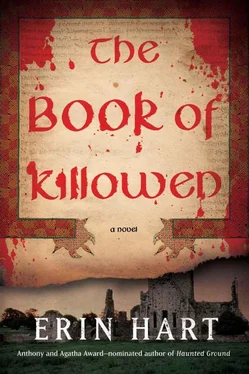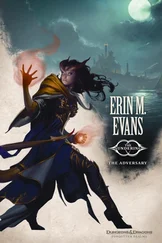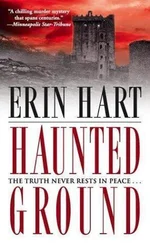Her thoughts returned to Kavanagh’s references in his note to a mysterious manuscript and the curiously few degrees of separation between the body in the boot and the residents of Killowen. Vincent Claffey’s gob full of gallnuts—it seemed a deliberate clue, perhaps a little too deliberate. There must be a logical order to all the disparate pieces of information they’d collected so far. She just had to figure out how they all lined up.
Stella set out for the station. Dawson had started to tell her about the anonymous tip he’d received in April, about a mysterious ancient manuscript. Kavanagh’s handwritten notes flickered through her head: I OH returns to IRL, great work unfinished. What was the great work? Mairéad Broome said the initials IOH belonged to the object of her husband’s obsession, this ancient scholar Eriugena. This is going to rattle some bones , Kavanagh had told his wife.
When she arrived at the makeshift incident room, Stella began scribbling notes on the whiteboard:
IOH—great work unfinished
Treasure hunters operating near Killowen—manuscript?
Kavanagh here 18 mos earlier—notes on location of Faddan More
Healy/Broome paying Claffey off
Cregganroe?
She stood back and took in the whole picture. Like the debris field after an explosion, there were fragments and bits of things all scattered and mixed together.
“We need to know more about this Eriugena character,” she said to Molloy, who’d just come in. “What can you find out about him?”
Molloy opened his laptop and tapped a few keys. “Let’s see, John Scottus Eriugena.” He went through the history as Stella scribbled a few notes. “Early details are sketchy. Most people think he died around 877, probably in France. They’re not sure whether or not he was a cleric.”
“Anything there about his ‘great work’?”
Molloy peered at his screen. “His major work was a philosophical treatise, Periphyseon—On the Division of Nature . Here’s something interesting—the last line mentions ‘recent discoveries of manuscripts.’”
“How recent?”
Molloy scrolled down to the bottom of the page. “Ah, this was written in 1909.”
“No joy from Interpol?”
“Nothing yet.”
Stella spotted a fat interdepartmental courier envelope in the wire basket on a shelf behind Molloy’s head. “What’s that?”
“Case file on the Cregganroe bombing you requested. Arrived this morning.” He reached for the file and handed it over. Stella shoved it in her bag; she’d have a look at it later.
“What about Diarmuid Lynch? What do we know about him before he turned up at Killowen?”
“He’s no driving license, which is a bit odd in itself. Says he had a passport but lost it when he got back from Spain. So I checked. Forty-six passports issued to people with the name Diarmuid Lynch over the past twenty-five years. The thing is, Stella, it’s just you and me on this case. We don’t have the manpower to track all these people down.”
Martin Gwynne was in his studio bent over a sheet of parchment when Cormac and Nora arrived at his door. Nora waited until the quill lifted from the calfskin before speaking. “Mr. Gwynne?” She pulled Cormac into the room after her. “We wondered if you would mind having a look at some photographs.”
“What sort of photographs?” Gwynne said, apparently a little puzzled by the request.
Cormac spoke this time. “We had a textile expert here going through our bog man’s garments, and we found this tucked inside his cloak.” He laid the printed photographs of the tablet on the table.
Gwynne stared at the pictures, as if touching them might make the images evaporate. “My God, a wax tablet.” He proceeded to examine each photo in minute detail before turning to the next. “I’m sorry, where did you say this came from?”
“Killowen Man’s cloak,” Cormac said. “He must have been carrying it when he went into the bog.”
“When he was dumped into the bog,” Nora said. “After being stabbed to death.”
“Is that right?” Gwynne seemed distracted, focused completely on the tablet images and not on his visitors or what they were saying.
Nora said, “We were wondering if you could help us decipher the writing.”
Gwynne looked up, as if suddenly aware that he was not alone. Cormac noted a twinge of melancholy—or was it regret?—that seemed to cloud the man’s features.
“Yes, of course, I can try.” He cleared his throat and settled down to business, pulling his lighted magnifier closer, setting the pictures out in two short rows. He pored over each photo through the thick glass. “The language is Latin, as you probably recognized, with a few Greek words interspersed. The script is Irish majuscule, very like the Springmount tablets.” Gwynne reached for a sheet of paper and a pen. “Let’s see if we can work out what it says…” The nib of his pen began to move across the page, Latin words appearing in a fancy, ancient-looking hand:
Si enim libertas naturae rationabilis ad imaginem Dei conditae a deo data est, necessario omne quod ex ipsa libertate evenit, malum seu malitia recte dici non potest
Gwynne stopped writing and looked at the paper. “ ‘For if the freedom of a rational nature has been given by God, then necessarily all that from freedom comes—or has come to pass, evil or malice’—no, that’s not right—it’s ‘cannot rightly be called evil or malice.’”
Cormac’s eyes were on Gwynne’s handwriting as well. “Definitely not Psalms, then. Any thoughts on what it might be?”
Receiving no answer, he glanced at Gwynne to find his face completely blank, the pen tumbled from his hand, his eyes staring into the middle distance. The change in demeanor was so abrupt, and so extreme, that Cormac had to wonder whether something had gone wrong inside his brain. “Gwynne,” he said sharply. “Martin, are you all right?”
All at once the eyes seemed to regain focus. “Yes, yes, quite all right. No, it’s not Psalms, you’re right about that.” He peered through the magnifier once more. “No, it’s something else entirely, but I’m not sure what. I’d be happy to hold on to these photos and keep working on them, if you like. It might take some time—I’m afraid my Latin has grown a bit rusty.”
“Anything you can tell us would be helpful,” Cormac said.
When they were out of earshot of the studio, Nora turned to Cormac. “I don’t suppose you would have noticed, since that was your first time in Gwynne’s workshop, but he’s gotten rid of the oak galls. There was a huge bowl on one of the side tables last time I was in the studio, and now they’re gone. Listen, one of us ought to spell Eliana for a while—I’ll take the first shift. What are you going to do?”
The shadows he’d seen skulking about the storehouse last night lingered in Cormac’s brain. “There’s something I need to check out. I’ll catch up to you in a bit.”
When Nora had gone, he made sure he was alone, then crossed the yard to the storehouse. The van was still parked out front. He glanced about once more and shaded his eyes to see in through one of the storehouse’s tiny windows. No one. Might be worth a look inside. He was just about to head for the door when Tessa Gwynne emerged from the forest path. He slipped quickly around the corner, hoping she hadn’t seen him. Tessa came straight for the storehouse and ducked in through the small doorway. Under cover of a vine, Cormac peered inside to see her looking through the items on the shelves, about two dozen packages, all neatly wrapped in brown paper. She seemed to be searching for a particular parcel. When she found it, she brought it down and pasted a Killowen Farmhouse Cheese label on top, then placed it in the basket she carried over her arm.
Читать дальше












